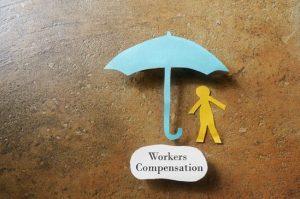
According to the U.S. Department of Labor, workers’ compensation protects employees in the United States from financial hardship in the event of a job-related injury by providing them with benefits such as:
- Wage replacement while they are out of work
- Medical treatment for their injuries
- Vocational training if they need to find another job
Unfortunately, profit-minded insurance companies often deny claims, and dishonest employers sometimes argue that injured employees are not entitled to compensation. This means recovering a fair payout after a workplace injury is a legally complicated endeavor. Several factors will affect whether your claim is successful and the amount of money you receive.
Common Mistakes that Derail Workers’ Compensation Claims
Unfortunately, getting approved for workers’ compensation benefits is not as easy as it should be. You suffered injuries, but the appropriate benefits you deserve—wage loss and medical care coverage—have not been approved because of a misstep or mistake.
Among other things, these four mistakes could prevent you from recovering fair compensation:
Filing Too Late
Workers’ compensation claims have a statute of limitations, which is a deadline by which the claim must be filed, according to the Legal Information Institute (LII). Your attorney can help you understand the specific deadline that applies to your case.
While meeting the deadline on the policy is vital, there are other reasons you need to act quickly. Most policies require you to notify your employer as soon as possible, and you will want to because this is what begins the process. You will not begin to receive wage loss payments and other benefits until your employer is aware of your injuries and files paperwork with the workers’ compensation insurer.
Failing to Prove Employer-Employee Relationship
For a workers’ compensation claim to be successful, there must be an employee-employer relationship. If that relationship does not exist, you will not be able to recover benefits. Most states require covered companies to provide workers’ compensation benefits for all employees. This includes full-time, part-time, seasonal, and occasional workers. Benefits begin as soon as workers report to the job for the first time, even for training.
Sometimes employers wrongfully argue that an employer-employee relationship does not exist. If this happens, a workers’ compensation lawyer can discuss your case and help you decide what steps you should take to fight for your rights.
Not Visiting a Doctor
If you suffer a work-related injury, your top priority is to seek medical attention. After you have reported the injury to your employer or manager, visit a doctor immediately. In the event of an emergency, you can seek care before reporting your injury to your company, but you need to notify them in writing as soon as you are able.
A fast diagnosis could not only improve the outcome of your treatment, but it may also increase your chance of recovering workers’ compensation benefits. If you put off a medical evaluation, it may not be easy to connect your injuries to the work-related accident.
This is one reason it is sometimes more difficult to get benefits based on a chronic use injury or job-related illness than an acute injury that occurred in an incident at work.
Not Showing Evidence that the Injury Qualifies for Workers’ Compensation Benefits
Some injuries do not qualify for workers’ compensation claims. For example, self-inflicted wounds and those that result from the employee’s negligence may not qualify. In reality, it is rare that an on-the-job accident does not fall under the coverage provided by workers’ compensation. These are not fault-based claims, and some situations in which the claim is rightfully denied involve intoxicated or reckless workers.
Again, employers sometimes attempt to argue that an injury does not qualify when the worker is in fact entitled to benefits. If this happens to you, a workers’ compensation law firm may be able to help you prove you did not cause your own injuries through bad behavior and are therefore entitled to benefits.
For a free legal consultation, call 800-537-8185
Should You Hire an Injury Attorney?
Far too often, insurance companies and employers prioritize their financial interests over those of injured workers. Even if your claim is successful, you may not receive fair compensation. An injury attorney can represent your interests and help you fight for a fair payout. If your claim is denied, your lawyer will help you appeal the decision.
In addition, your lawyer can review the facts of what happened and determine if you have eligibility to pursue compensation through any other means. While you typically cannot sue your employer, you may have a case against a third party who caused or contributed to your injuries—for example, another company whose employee’s negligence led to your injuries.
A common example of this is when there is an accident involving a delivery or service provider at your work. Imagine a vendor was making a delivery, and that delivery driver hit you with their truck. While you were hurt on the clock and this is a compensable injury through workers’ compensation, you may have a personal injury case against the vendor and their employer, as well.
Discuss Your Case With a Morris Bart, LLC Lawyer for Free
If you were injured on the job in Alabama, Arkansas, Louisiana, or Mississippi, contact the Morris Bart law firm. Our workers’ compensation attorneys will handle the legal aspects of your claim so you can focus on recovering from your injuries. We provide free case reviews for workers hurt on the job within our four-state service area. We may be able to help you get the workers’ compensation benefits you need and deserve.
Call (800) 537-8185 today to receive a free initial consultation with a workers’ compensation attorney.
Questions?Call 800-537-8185
to find a Morris Bart office near you.





